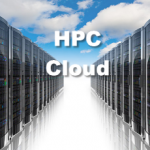In this video from the Dell booth at SC14, Rich Brueckner from insideHPC moderates a panel discussion on Cloud HPC. Panelists include: Muhammad Atif (NCI), Larry Smarr (UC San Diego), Roger Rintala (Intelligent Light), Boyd Wilson (Clemson University & Omnibond).
How the ‘C’ in HPC can now Stand for Cloud
Most IaaS (infrastructure as a service) vendors such as Rackspace, Amazon and Savvis use various virtualization technologies to manage the underlying hardware they build their offerings on. Unfortunately the virtualization technologies used vary from vendor to vendor and are sometimes kept secret. Therefore, the question about virtual machines versus physical machines for high performance computing (HPC) applications is germane to any discussion of HPC in the cloud.
How to Reap the Benefits of the Evolving HPC Cloud
In such a demanding and dynamic HPC environment, Cloud Computing technologies, whether deployed as a private cloud or in conjunction with a public cloud, represent a powerful approach to managing technical computing resources. Now, learn how breaking down internal compute silos, by masking underlying HPC complexity to the scientist-clinician researcher user community, and by providing transparency and control to IT managers, cloud computing strategies and tools help organizations of all sizes effectively manage their HPC assets and growing compute workloads that consume them.
Making the Hybrid Cloud Work for HPC
As more applications and computing resources move to the cloud, enterprises will become more dependent on cloud vendors, whether the issue is access, hosting, management, or any number of other services. Even in today’s IT environment, cloud consumers want to avoid vendor lock-in—having only one cloud provider. They want to know that they will have visibility into data and systems across multiple platforms and providers.
HPC Virtualization and Secure Private Cloud
This article is the third in an editorial series that explores the benefits the HPC community can achieve by adopting HPC virtualization and secure private cloud technologies. Virtualization has been proven to be a viable architectural approach that addresses the many challenges mentioned in last week’s article. This week and next we look at the benefits of creating a virtualized infrastructure.
Preparing for HPC Cloud Computing
Make sure you use Cloud services that are designed for HPC applications including high-bandwidth, low-latency networking, exclusive node use, and high performance compute/storage capabilities for your application set. Develop a very flexible and quick Cloud provisioning scheme that mirrors your local systems as much as possible, and is integrated with the existing workload manager. An ideal solution is where your existing cluster can be seamlessly extended into the Cloud and managed/monitored in the same way as local clusters. Read more from the insideHPC Guide to Managing HPC Clusters.
Scyld HCA Turns Any HPC Linux Cluster into a Managed Hybrid Cloud
Today Penguin Computing announced the Scyld HCA, an HPC Cloud Appliance that turns any HPC Linux cluster into a fully managed HPC hybrid cloud environment. Designed for ease of use, the new appliance also provides seamless hybrid access to Penguin Computing on Demand (POD) to support cloud-bursting.





